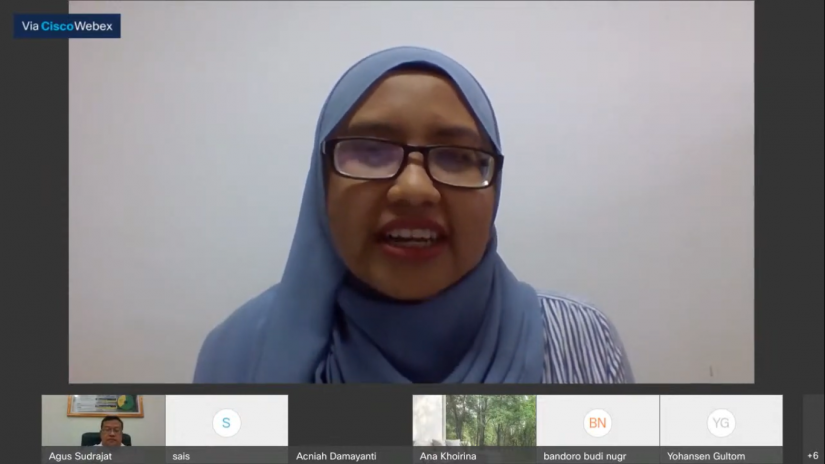
Yogyakarta, July 30th 2020—Community Service Team (CST) of FISIPOL UGM held its fourth discussion on Wednesday (29/7). This discussion was titled as ‘Creating Community Economic Resilience During Pandemic: Development and Integrated Urban Farming Training for Urban Communities’. This discussion presented Agus Sudrajat, Head of Social Services of Yogyakarta, and M. Qomarun Najmi from Indonesian Peasant Union and Sekolah Tani Muda (Young Farmers School). This discussion also presented COVID-19 Community Service Team, Matahari Farransahat, a lecturer of Department of Social Development and Welfare FISIPOL UGM and Achniah Damayanti, as the moderator.
Achniah begun the discussion by explaining about a research of the Community Service Team regarding integrated urban farming training or aquaponic in Kampung Badran, Yogyakarta. Achniah said that this training was motivated by the large number of urban communities which were affected by the pandemic economically. Because of that, urban farming could be a form of solution to maintain the food security of urban communities.
Matahari said that an effort was needed to develop new business opportunities to improve the economic resilience of the Yogyakarta people. From what he has done with the team, there were some important notes in business creation. First, by seeing the potencies and city limitations, such as narrow lands. Second, the products must be acceptable and needed by customers, especially in this condition, it needed primary needs. Third, the businesses must be manageable in order to continue. “Sustainability needs innovations in every thing related to productivity, efficiency, and sustainability,”.
Matahari also explained several recommendations in order to increase economic resilience of urban communities. First recommendation, through urban community empowerment programs that played a role in increasing community capacity and also developing social capital. The next recommendation was intensification of assistance to find solutions to obstacles and the effectiveness and efficiency of results. The last recommendation was conducted in collaboration with various parties, such as academics, business partners, Non-Governmental Organizations (NGOs), government, media, and capital support.
Najmi also explained several points regarding urban farming as a solution to food security of urban communities. For him, urban farming could be an alternative, not only in the availability of food but also access to healthy food. Najmi said that urban farming arose because of limited land in urban areas, so it was necessary to optimize other resources. The resources that he meant was knowledge or technical things and networks. “Technical things need guidance and also a community where we can learn together,” Najmi said.
Other than that, Najmi added that urban farming needed media and nutrition. Media and nutrition could we get from simple things. “We could utilize nutrition from aquaculture water and household waste,” he added.
Different from the two speakers, Agus said about the Yogyakarta Government’s policy in responding to economic, employment and food security issues in the pandemic era. Agus said that the Yogyakarta Government’s assistance policies during the pandemic were focused on the poor, disabled people, women and children. Other than that, Yogyakarta Government cooperated with non government organizations such as YAKKUM in synergizing intervention programs in the community. “One example of synergy programs was the results of E-Warong cultivation which managed by KUBE Jasa PKH that distributed to the food aid recipients,” Agus said.
